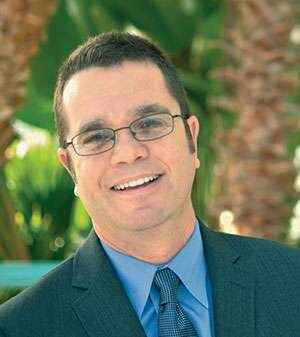
Soft Water Seen As Possible Strain On Single-Serve SalesFriday June 26th, 2015 - 10:29AM
These are shortcuts to your favorite social networking and bookmark sites. Add this story to your Facebook page, del.icio.us, DiggIt, and many others!
Single-serve coffeemakers at Walmart.
NEW YORK— Is the use of soft water with single-serve coffeemakers having a negative impact on sales in the category and leading some consumers to seek other home coffee making options? That question is now being asked by at least one leading national retailer of single-serve coffee brewers and coffee pods, HOMEWORLD BUSINESS® has learned, as retailers seek to find answers as to why this once hot category has seen a dramatic sales decline over the past 12 months. A top executive with a national retailer, who spoke to HomeWorld on condition of anonymity, reported that sales of Keurig units at the chain were down about 20% and that sales of K-Cups were also trending downward but may stabilize as the result of “severe discounting.” The national retail executive named Keurig specifically given that the coffeemaker supplier accounts for an overwhelming majority of shelf space in the retailer’s single-serve coffeemaker selection. Independent sources that track housewares product sales confirmed to HomeWorld that single-serve coffeemaker sales in 2015 are down between 20% and 25%. In addition, Keurig in May reported that its brewer sales for the first quarter ended March 28 were down 22%. The drop in sales also comes at a time when return rates of single-serve brewers are on the rise with at least one large chain. The retail executive that spoke with HomeWorld noted that return rates in 2013 and 2014 specific to Keurig brewers were about 20%. In 2015, the retailer said return rates are “higher than in previous years” but did not specify the reasons for the increase. A Keurig spokesperson told HomeWorld that the company is in a “quiet period” and therefore top-level executives were not available to comment. At issue with using soft water together with single-serve coffeemakers is the salt used to soften water. This issue is best encapsulated on the website for Cross Country Café, the parent company of which has been in the water industry for more than 100 years, according to general manager April Schroeder. In a blog post on the Cross Country Café website, Schroeder explained that sodium ions form around coffee grinds and tea leaves and make both less penetrable. This slows the extraction process, leads to poor tasting coffee and tea and could also clog a single-serve brewer, she wrote. Dr. Christopher H. Hendon, Computational Chemist, Department of Chemistry at the University of Bath in the United Kingdom, confirmed Schroeder’s comments, adding that softer water negatively impacts the extraction from coffee grinds. In 2014, Hendon published “The Role of Dissolved Cations in Coffee Extraction,” a study that focused on impact of certain compounds in water, such as salt, and how those compounds impact the taste of brewed coffee. Information from the United States Geological Survey (USGS) shows that soft water is found in roughly 25% to 30% of the U.S. A USGS map shows softest waters were in most of New England, the South Atlantic and Gulf States and the Pacific Northwest. With single-serve coffeemaker sales clearly down this year, housewares industry insiders have floated several theories to explain this decline. Among the more discussed have been market saturation, price levels of high profile single-serve units, price of coffee pods and consumer frustration with Keurig’s 2.0 technology that limits the types of coffee pods consumers are permitted to use with the units. The soft water theory is one that, while not new, has bubbled to the surface more recently despite the fact that information about soft water and its use with single-serve units have been discussed by some. In fact, Keurig’s website under “General Brewer Information” says, “We don’t recommend the use of softened water or distilled water. Bottled or spring water works best when brewing with your Keurig.” Schroeder agreed, noting that filtered water and bottled water is the best choice when using Keurig brewers. Also, Keurig cautioned its customers about the impact of hard water, which leaves deposits of scale or lime on the unit. The company suggests descaling the brewer every three to six months. Bruce Burrows, president of iCoffee, which in 2014 debuted its line of single-serve coffeemakers, acknowledged that his company recently became aware of issues with consumers that use softened water and/or well water with his company’s brewers. “By mid-March several iCoffee owners reached out and told us they were occasionally experiencing grounds in their cups and unusually slow brew times,” he said. Burrows said his company did “extensive testing” of several single-serve coffeemakers— iCoffee units as well as other brewers— using soft water from the homes of consumers who contacted the company. As a result, iCoffee discovered that the sodium ions in the water were negatively impacting the performance of each brewer. The use of soft water leads to brew times of up to 400% longer, grounds spilling out from K-style cups and a noticeable over-extraction of bad tasting coffee flavors, he said. “We discovered that re-engineering our spinning needle jet geometry to spray a wider angle of steaming hot water from the jets sweeps away the build up of coffee deposits that plug up the paper filter,” he said. Burrows said by early May his company was manufacturing the updated units with the re-engineered spinning needle. “We reached out to our retail partners to let them know how we had addressed the problem and would not have to dictate using a specific water source for their guest’s enjoyment of brewing with iCoffee,” he added. The national retail executive who spoke with HomeWorld feels the soft water issue is one that is having a negative impact on beverage taste and brewer performance. “When you brew with soft water in a Keurig brewer, inclusive of those units made by Keurig licensees, as well as some other brands of single-serve K compatible brewers, they exhibit significantly longer brew times and result in an over extraction of undesirable, bitter flavors and oils in the cup,” the retail executive claimed. “The result is that [consumers] are experiencing a negative taste and experience. These issues cause returns to escalate, including multiple returns looking for a better result.” The retailer feels that the soft water issue is now a major factor in consumers turning away from the single-serve category. “Coffee drinkers will not put up with poor performance from a brewer that is comparatively costly,” the retail executive said. —GREG SLETER Tags: Single-serve coffee • Keurig • sales • soft water • water • water quality • coffee • coffee makers • coffee brewing • coffee pods • single serve sales • brewers • iCoffee • beverage • taste • Housewares • Small Electrics • Retail •
« Go Back
« Printer Friendly
|

Sears Debuts Flagship Connected Solutions Store »
Soft Water Seen As Possible Strain On Single-Serve Sales
Report: Walmart Setting Supplier Fees To Balance Labor Costs
Chief Merchandising Officer Tesija Transitioning Out Of Target
Bed, Bath & Beyond Misses In Q1, Online Investment Boosts Comps
Dallas Market Highlights Giftable Housewares
Ikea Raises Minimum Wage Again

After a winter that seemed would never end fades deep into the background, the housewares race is heating up as the all-important second half nears. There is no turning back at this point. But a recap of some of the first-half developments that set the pace for 2015 provides some guidance.



